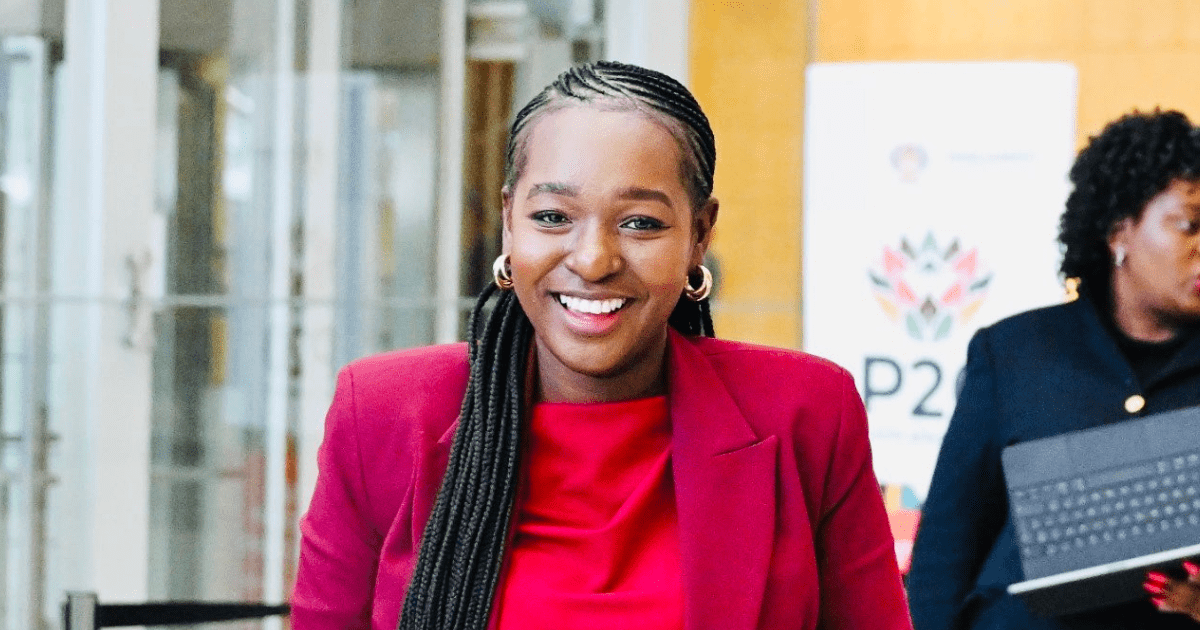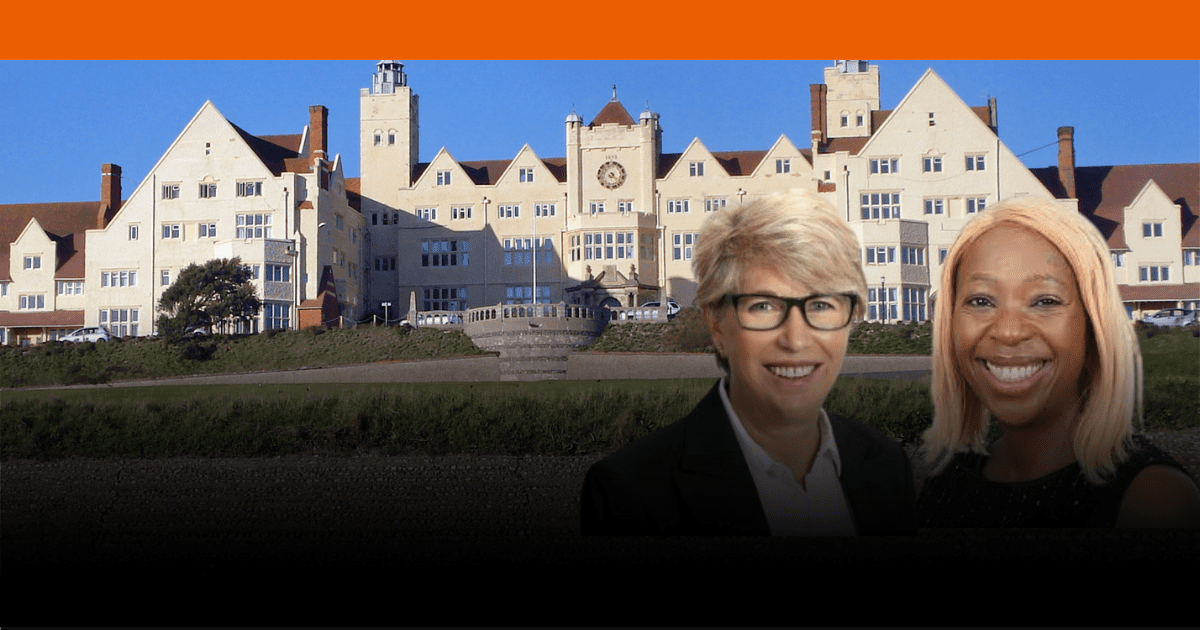When Malebo Kobe returned from China in 2015 with a master’s degree in international relations, she thought the hardest part was behind her. She’d overcome language barriers, long nights of study, and homesickness — and believed her education would open doors.
Instead, reality bit. “Even if you have access to the best education, you are not necessarily protected from experiencing unemployment on a grand scale,” she told explain. That uncertainty, she says, shaped her understanding of the struggles young people face today — in a country where even the most qualified aren’t guaranteed work.
Now 34, Kobe sits in Parliament as ActionSA’s youngest Member of Parliament, serving on the Water and Sanitation, Public Works and Infrastructure, and Transport committees — three portfolios central to service delivery.
ActionSA, founded in 2020 by former Johannesburg mayor Herman Mashaba, won six National Assembly seats in the 2024 election with 1.2% of the vote. The party brands itself as anti-corruption and pro-accountability. Although it initially refused to join the Government of National Unity, Mashaba later said he’d consider it “to keep our country stable.”
From Seshego to the National Assembly
Kobe grew up in Seshego, near Polokwane, in a middle-class family — her mother a nurse, her father a teacher. “I had independence and support,” she recalls. But losing both parents within four years — her mother in 2014, her father in 2018 — upended that stability.
“As soon as that reality hits you, the false sense of security disappears,” she says. “Even with education, you’re not protected from unemployment.” Youth joblessness sits at 46.1%, trapping many qualified young South Africans in poverty.
That experience inspired her to launch the Kobe Malebo Foundation, which supports child-headed households. “With my NGO it was very sectoral,” she explains. “But in politics, you can champion these issues on a broader scale.”
She joined ActionSA as a provincial communications head, became a spokesperson, and within two years was sworn in as an MP.
What does an MP do?
The job of an MP is bigger and more varied than most people realise. They take part in debates, help process legislation, make appointments, and scrutinise government performance and budgets. MPs also spend a lot of time outside Parliament consulting with the public, overseeing projects, conducting investigations, doing party work, and serving people in their constituencies.
For Kobe, her days in Parliament are filled with committee meetings, speeches, and endless preparations. But she insists on making space for herself outside politics.
“I’m a girl’s girl,” she laughs. “I like running, spa dates, and cute lunches with my friends. The aesthetics matter!”
Striking a balance between her political duties and her personal life is tough, especially with her time divided between Parliament in Cape Town and her constituency in Limpopo.
“You know, people are always talking about how difficult it is to date, or mjolo [slang for dating] is such a pandemic. But like when you get into our space, it’s much more difficult,” she shares.” I try to attend birthdays, go on dates, check in with my partner every morning and evening.” She emphasises the importance of staying in touch with her family and friends.
Championing youth participation
As the youngest member of ActionSA’s caucus, Kobe pushes for policies that back young entrepreneurs — like tax exemptions for youth-owned businesses and rebates for companies hiring young workers.
“It’s not fair that struggling young businesses compete under the same conditions as long-established firms,” she argues. On Youth Day this year, she urged Parliament to prioritise skills development and create sustainable funding models for students.
ActionSA has tabled a Zero-Tolerance Corruption Bill to bar corrupt officials from public office and launched its #Spaza4Locals campaign to boost township economies. But critics accuse the party of stoking xenophobia — particularly leader Mashaba’s rhetoric linking migrants to crime — arguing it distracts from deeper issues like unemployment and inequality.
Kobe’s stance on corruption is shaped by her years in China. “We can define corruption for what it is so we can enforce real solutions and the law to deal with it,” she says.
South Africa’s struggle with graft, from state capture to municipal scandals, remains immense. “If you’re guilty of corruption, you should go to jail,” Kobe insists. “That’s how you grip corruption at the root.”
What does it take to be a young woman in male-dominated politics?
Walking into Parliament as a young woman hasn’t been a walk in the park. Kobe shares that the political arena is a male-dominated space; women’s representation has recently declined from 46% in 2020 to 43% in 2024.
“Males by default find themselves to be leaders, naturally in this environment, and they’re comfortable in owning that space,” she says. For Kobe, it has been easier to work with her male colleagues than her female counterparts. “It has been typically much more difficult to get warm reception from them, to get them to extend opportunities and invitations to us,” she shares.
“Males do not feel as though our presence is threatening to their survival. So when you get into such a space, your male colleagues are much more amenable to your presence. They open up opportunities for you to participate,” she says, adding that while there is still some gatekeeping, men generally extend opportunities.
Kobe leans on her people skills to cope, using them to soften relations with other females. She believes women can strengthen each other’s voices if they find common ground.
A call to young women
A message that Kobe is clear about is that young women can’t afford to sit back.
“We are the ones worst affected by unemployment, by socio-economic issues, by gender-based violence. You can only change things when you’re inside the system. You can’t do it from the outside, screaming in.”
Kobe knows how it feels to be qualified, unemployed, and watching hope slowly die out. That reality still drives her work today. She entered politics because she understood that unemployment isn’t just a statistic, but a lived experience for millions of young South Africans.
For her, politics isn’t about titles or positions, but it’s about being the voice of young people, to break the endless cycle of unemployment and advocating for policies that will best serve the youth.
Lona is a recent graduate with an Honours degree in Journalism and Media Studies from Wits University. Passionate about storytelling, she is eager to learn, grow, and hone her writing skills.




